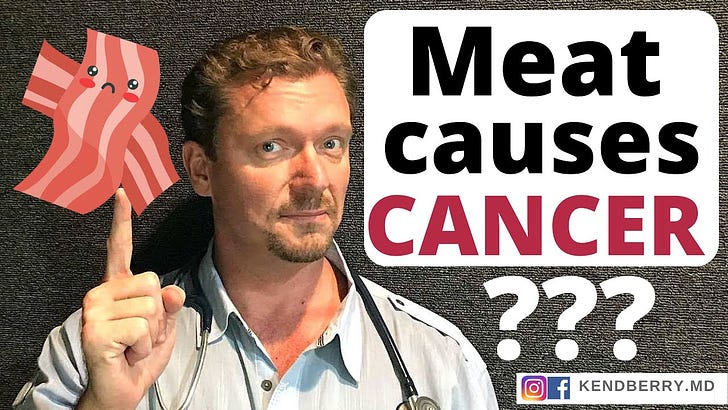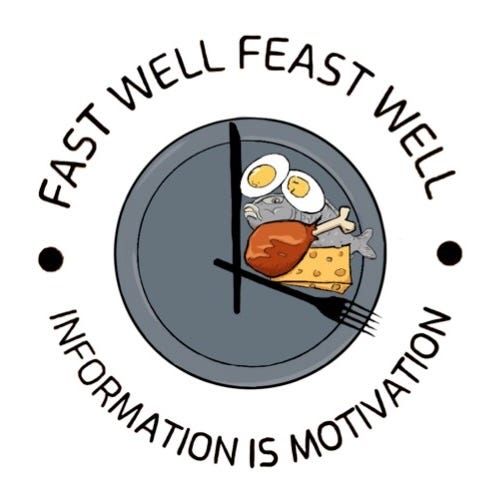Is There Evidence That Red Meat Causes Cancer?
A video that explains how certain kinds of medical studies can be manipulated to say exactly what the researchers want them to say.
For anyone interested in how to be discerning about the conclusions from medical studies, I highly recommend you listen to this 14-min video by Dr. Ken Berry.
First, Dr. Berry explains the holes in the studies pushed by the WHO that seem to indicate that meat could increase your risk of cancer. Then, Dr. Berry uses this as an example to show how important it is to examine the design of any study before accepting its conclusions.
Here are some quick takeaways:
Epidemiological studies can never prove causation, only correlation. The correlation needs to be extremely high to be considered statistically significant.
The ‘meat causes cancer’ studies demonstrate a relative increased risk of only 1.1 while a relative risk of 1.0 signifies no correlation. For comparison, the epidemiological studies linking smoking to lung cancer show an increased relative risk of between 15 and 30. Now that’s something to pay attention to. But 1.1 is considered significantly insignificant.
There are several very well-designed studies that show the opposite: a decreased risk of cancer from meat consumption.
For example, one study followed 49,000 women for 8 years. It concluded that increased red meat intake decreased the overall cancer rate by 20%.4
Another study followed 2,000 people for 4 years with an 8-year follow-up. It also found that people who ate more red meat had less cancer.5
When studies contradict each other, put more weight on the longer studies with more participants. Many of the ‘meat causes cancer’ studies relied on food questionnaires for their data which is not a reliable source.
In other news, the World Economic Forum is calling for people to stop eating meat. Don’t be surprised if they fund a slew of studies showing meat causes this, that, and the other. But pay attention to the design of the studies.




